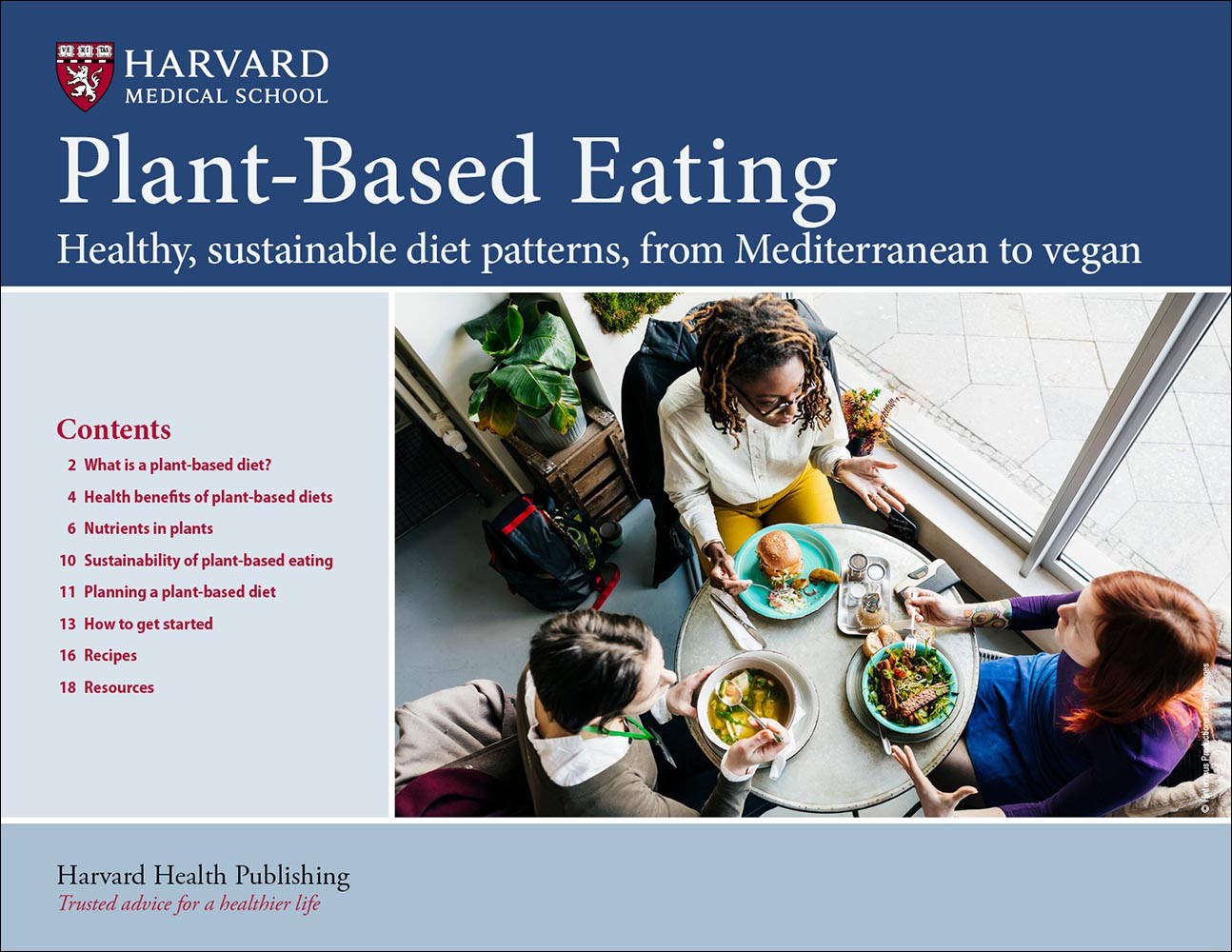Boosting share of protein from plants in diet may lower heart disease risk
In the journals
- Reviewed by Howard E. LeWine, MD, Chief Medical Editor, Harvard Health Publishing; Editorial Advisory Board Member, Harvard Health Publishing

The researchers calculated each participant's total protein intake, measured in grams per day, and their specific intakes of animal and plant proteins. Poultry, red meat, and dairy were the top contributors to animal protein. The main plant protein sources were refined grains, whole grains, potatoes, nuts, and beans. Participants whose diets had the highest proportion of plant versus animal protein had a 19% lower risk of cardiovascular disease and a 27% lower risk of coronary artery disease than those who consumed the lowest proportion. According to the researchers, the average American eats a 1:3 plant-to-animal protein ratio (meaning one serving of plant protein for every three servings of animal protein).
To continue reading this article, you must log in.
Subscribe to Harvard Health Online for immediate access to health news and information from Harvard Medical School.
- Research health conditions
- Check your symptoms
- Prepare for a doctor's visit or test
- Find the best treatments and procedures for you
- Explore options for better nutrition and exercise
I'd like to receive access to Harvard Health Online for only $4.99 a month.
Sign Me UpAlready a member? Login ».
About the Author

Matthew Solan, Executive Editor, Harvard Men's Health Watch
About the Reviewer

Howard E. LeWine, MD, Chief Medical Editor, Harvard Health Publishing; Editorial Advisory Board Member, Harvard Health Publishing
Disclaimer:
As a service to our readers, Harvard Health Publishing provides access to our library of archived content. Please note the date of last review or update on all articles.
No content on this site, regardless of date, should ever be used as a substitute for direct medical advice from your doctor or other qualified clinician.
















